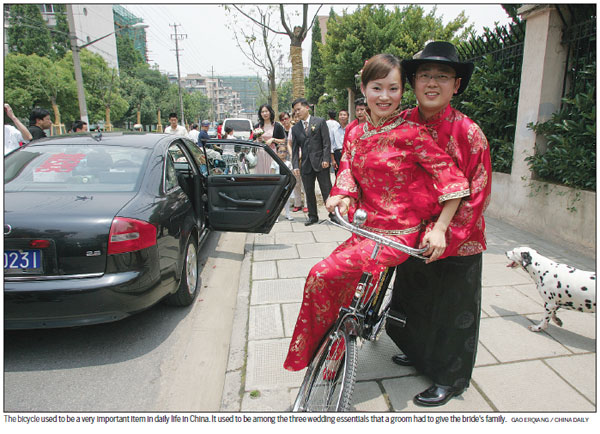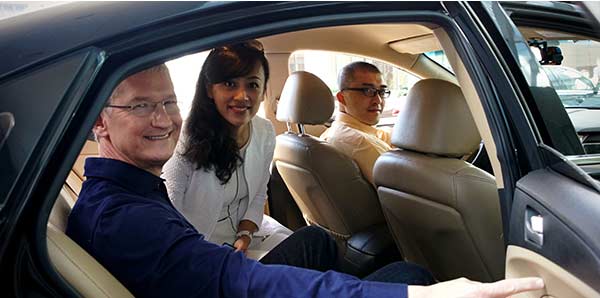Two wheels are better than four

The booming shared bike industry has rekindled China's love affair with bicycles, but this phenomenon has also raised new problems that need to be addressed
"Have you eaten?" is one of the common ways Chinese like to greet one another.
Food, after all, is an important part of Chinese culture.
These days, however, people are more inclined to ask, "Have you ridden a bike?"
The scenes of sidewalks congested with shared bicycles of various colors is reminiscent of 1980s China when the two-wheeled vehicle was the primary transportation tool for the majority of the population.
China had become synonymous with bikes. Even Western movies and documentaries served to reinforce this notion. Most films that had scenes shot in China would have at least one frame showing cyclists pedaling down a road.
The famous hordes of cyclists started to become a rarity in the mid 2000s. The country's economy was booming. People started to become wealthier. Bicycles were quickly replaced by cars.
But it did not take too long for the country to come full circle. In 2016, Mobike unleashed its shared orange bikes onto the streets in Shanghai, sparking a revival in the love affair with bicycles. Other colored shared bikes soon followed suit. The sidewalks of Chinese cities soon became a colorful spectacle.
In just one year, over 10 million shared bikes by more than 30 operators have been placed on the streets of China, with user numbers hitting 100 million, according to a report from Xinhua News Agency.
Yao Chengwu, Mobike's general manager of East China, said that the company now operates some 4.5 million bikes in over 80 cities home and abroad.
Zhang Siding, co-founder of ofo, revealed that the company has already turned a profit in two cities. Dai Wei, founder and CEO of ofo, told Bloomberg that the company generates about 10 million yuan ($1.47 million) in revenue every day. The brand currently owns 6 million bikes across 100 cities around the world. It is now planning to expand its operations to 200 Chinese cities and 20 countries by the end of this year.
"There are more than 10 sizable shared bike operators vying for market share. As of April, Mobike and ofo each own more than 20 million monthly active users, followed by Youon Bike with 1.2 million, Bluegogo with 559,000, Hellobike with 533,000, CoolQi Bike with 385,000 and Xiaoming Bike with 244,000," said Zhang Xu, an analyst from Analysys, a domestic internet research firm.
Zhang also believes that most of the players in the shared bike market will die out by early next year, with two or three companies dominating the industry alongside four or five smaller regional operators.
To Yu Yi, founder and CEO of U-Bicycle, the business is much more than just providing people with a no-frills transportation solution - the big data involved in the business could be used to create better services and products in the future.
"There may already be quite a number of shared bike operators in major Chinese cities but there are still opportunities in the smaller cities as well as overseas markets. U-Bicycle will be looking to launch our services in the United States and Europe in the coming two months," he said.
Zhang Heng, the marketing director of Xiaoming Bike, added that shared bikes also represent opportunities in advertisement and cooperation with other types of businesses.
















